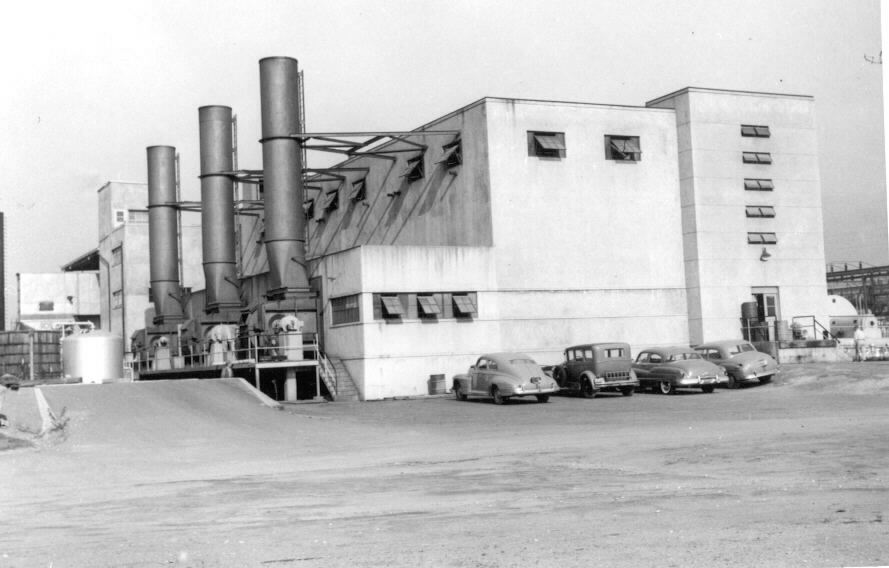The title of this piece is not a set of words anyone expects to see these days, what with the goings-on in Yerevan and much of the rest of Armenia. But the underlying ideas of this article were originally meant for comments I was going make to the Glendale City Council last Tuesday. That body of five hosts four Armenians.
The issue at hand was “Grayson Repowering”—repowering is electricity-world-speak for replacing an old power plant and Glendale’s natural gas (methane) fired plant is named Grayson. The plant is not just one unit, but several, built over the years, between 1941 and 1977. Most of them are teetering on the brink of inoperability for safety, cost, or can’t-get-spare-parts reasons. Two units may already be dead.

The Grayson Power Plant, circa 1950s (Photo: City of Glendale)
There’s no question that it is time to replace them. The question is, “With what?” Glendale Water and Power (GWP) staff had hired a consultant and gone through the process of preparing an Environmental Impact Report (EIR) over the course of some three years.
But since last summer, serious questions about the option GWP preferred have arisen among the residents of Glendale. That option is to build a new methane burning plant. Unfortunately, aside from the obviously global warming and pollution issues building such a plant presents, doing so may also result in serious financial problems for the city in the future because electricity production, especially in the state of California, is headed in a non-fossil fuel (oil, gas, coal) based direction. That is, renewable energy—wind, solar, etc.—sources are increasingly being required. In fact, proposals for 100% renewable based electricity production already have been introduced in the California legislature, though none have yet passed. If this mandate is enacted, then the planned 30-year (and practically probably even longer) life of the plant would be cut short. The $500 million spent on its construction would not even be paid off, hence the financial debacle
The question before the Glendale City Council was whether to approve the EIR as currently formulated (which did not seriously consider renewable options since the technology was not as advanced as it is today when the document was originally being prepared), or, to hit the pause button. The latter option is what the GWP Board, one of the city council’s appointed committees unanimously advocated. A 90-day review period is what was recommended so that other, likely better, options could be considered.
There was much resistance from city staff and consultants to this waiting period. To my mind, they were engaged in some hyperbole and fear-mongering. In fact, that’s what made my change my mind as to what I was going to say to the city council. Instead, I pointed out the disingenuousness of some of the points and the overall approach of the report presented to council (one example is referencing a study from the 1990s, almost the stone age when it comes to renewables). The council seemed quite divided over what course to choose when I left just before midnight—that’s when the public comments finally ended!
Happily, the Glendale City Council chose the right course. They chose to slow down, take a good look at newer, better options, then make a final decision. That had been my hope. It was what I was going to request of our four compatriots serving on the council (with apologies and due respect to their one non-Armenian colleague). Be wise, show that Armenians are capable of running governments in proper service of their constituents/residents/citizens, rather than for corrupt oligarchic avarice.
Hundreds of people turned out that day to express their concerns to their elected leaders. Unfortunately, relatively few were Armenian (though I was pleased to see the Armenian National Committee of Glendale advocating a well-considered course).
We must be at the cutting edge of involvement and activism wherever we live and issues arise, be that Glendale, Lebanon with its upcoming elections (where Armenian voter turnout is going to be critical), or in any part of our homeland with its complicated, jurisdictionally divided, layout.
The post Wise Armenian Governance appeared first on The Armenian Weekly.
Source: Armenian Weekly
Link: Wise Armenian Governance
